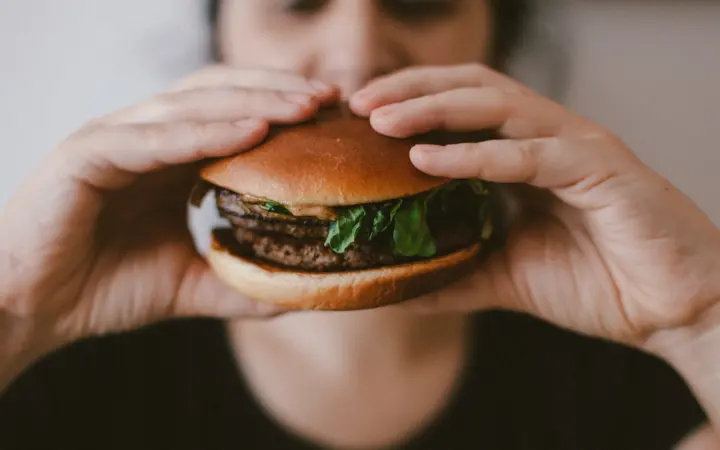A book that may interest you - don't be too nice
One of the most important self-development books that discusses the art of rejection, not only for the logic of rejection. But rejection is for the sake of psychological and health interest. Not all acceptance is praiseworthy and not all rejection is blameworthy.
Don't Be Too Kind provides a broad look at our behaviors and how they affect our relationships and lives in general. Robinson argues that being too kind can be harmful, as it can lead to being exploited by others, feeling resentful, or even losing self-esteem.
The book provides practical steps on how to set healthy boundaries in our relationships, how to say "no" without feeling guilty, and how to overcome feelings of shame or loneliness that may prevent us from setting these boundaries.
Recommend
We highly recommend this book to anyone who feels exploited by others. And anyone who has difficulty saying "no". Or he feels resentful of others. Or suffer from feelings of shame or loneliness. It is also mainly aimed at anyone who wants to build stronger and healthier relationships.
The most important ideas of the book
In a smooth and easy style, the author discusses many ideas that may seem very simple, but at the same time have a profound impact on our lives, both work and personal.
The book highlights the dangers of being too kind, and how it can exploit us and drain our energy.
In his book, Robinson offers a set of practical tips for setting healthy boundaries in our relationships, getting rid of feelings of guilt and unwanted obligations, and balancing kindness and self-protection.
The book provides valuable information about the dangers of excessive gratification and ways to get rid of it. The author provides real-life examples from everyday life that help the reader understand the concepts better. Here's a quick summary of the most important ideas:
• The difference between kindness and goodness: Robinson differentiates between kindness and goodness, where kindness refers to superficial behaviors and courtesy, while goodness refers to the true intention of goodness and help.
Risks of being too kind: Robinson warns of the dangers of being too kind, such as:
1. Others exploit us.
2. Feeling of depletion and fatigue.
3. Feelings of guilt and unwanted obligations.
4. Loss of self-esteem.

• Signs of excessive kindness: The book provides some signs that indicate excessive kindness, such as: feeling resentful of others, feeling responsible for the feelings of others, difficulty saying "no", feeling afraid of conflict, feeling unappreciated.
How to set healthy boundaries: The book provides practical steps on how to set healthy boundaries in our relationships, such as: identifying our needs and desires, expressing our feelings clearly, learning to say "no" in positive ways, sticking to our decisions, and not allowing others to exploit us.
Overcoming feelings of shyness and loneliness: The book provides tips on how to overcome feelings of shyness and loneliness that may prevent us from setting healthy boundaries, such as: building self-confidence, practicing self-care, and forming healthy relationships with supportive people.
• Getting rid of feelings of guilt: Robinson offers tips to get rid of feelings of guilt that may control us as a result of excessive kindness, such as:
1. Remind ourselves that we are not responsible for the happiness of others.
2. Forgive ourselves for our mistakes.
3. Focus on the positives in our lives.
The book "Don't Be Too Nice" was very popular among Arab readers, as it received many positive reviews.
Readers praise the book's useful and practical content, and appreciate the valuable advice writer Duke Robinson gives to get rid of excessive gratification behaviors and build healthy relationships.
Despite this, he has faced many criticisms...
Book Criticism

Many opinions, especially readers, ranged from supporters to opponents of the book's ideas, most of which were focused on the following:
• Simplicity of ideas: Some readers find the ideas presented by the book simple and direct, and do not offer new or innovative solutions to the problem of excessive gratification. Some even said that they were ideas that had nothing to do with reality.
Generalizations: Some opinions have been expressed that the book makes broad generalizations about overly gratifying behaviors, without taking into account individual differences between people. That is, it speaks generally, not focuses on specific situations.
Ignoring some aspects: Some people have accused the writer of ignoring some important aspects of human relationships, such as empathy and social responsibility. That is, it turns the reader of the book into a selfish person most of the time. Those were exaggerated views.
• Difficulty of application: Some readers point out that the advice given by the writer may be difficult to apply in some situations. A pure theory without connection to reality. This too was prejudiced against the writer, because there were also many who praised the realism of applying ideas in their lives.
![]()
Is the Nile the longest river in the world? Amazon would like the word.
The Nile is the world’s longest river- The Amazon would like a word more- ADVERTISEMENT
![]()
Getting to rock bottom: what it means and where to go from here
Hitting Rock Bottom: What It Means and Where to Go from Here more- ADVERTISEMENT
![]()
The Power of Nature: Learn about the forces behind a living volcano
Living volcanoes are powerful natural wonders—windows into Earth’s fiery depths. They dazzle with beauty, yet threaten with eruptions. From shaping landscapes to offering geothermal energy, they reveal nature’s immense force. By studying their behavior, we can better predict their eruptions and harness their energy for a safer, sustainable future. more- ADVERTISEMENT
![]()
Explore the magic of Belfast: from ship history to contemporary art culture
Belfast blends rich shipbuilding history with vibrant culture, stunning modern architecture, and lively arts. From Titanic’s legacy to music festivals and scenic parks, the city offers unforgettable experiences. Stroll markets, enjoy local dishes, and soak in the warmth of a place where tradition meets creativity. more- ADVERTISEMENT
![]()
How to develop your self-confidence?: The journey of character building and self-development
Self-confidence is a powerful inner force that grows through experience, reflection, and personal development. It's not inherited but built over time. With positive thinking, healthy habits, and clear goals, anyone can strengthen their self-worth and face life with courage and resilience. more- ADVERTISEMENT
![]()
Discover the Impossible: Turning Deserts into Dense Forests – Dream or Reality?
Desert greening turns dry, barren land into fertile areas using water-saving tech, solar and wind energy, and special soil treatments. One major project, the Sahara Forest Project, aims to fight drought and climate change while boosting local economies by transforming parts of the Sahara and Sahel into green spaces. more- ADVERTISEMENT
![]()
Why is the oud so popular in the Middle East?
The oud, with its deep roots in ancient Persia and warm, resonant sound, inspired the development of Western instruments like the guitar. Its fretless design gives Arabic music a unique depth, and its influence reached Europe through Andalusia, where it shaped musical traditions far beyond the Middle East. more- ADVERTISEMENT
![]()
Why does my mood change when I'm hungry?
Feeling hungry can mess with your mood—fatigue, anger, confusion—all thanks to low glucose. As levels drop, stress hormones like cortisol and adrenaline kick in, making you irritable. Even fish get aggressive when hungry! So grab a healthy snack, keep calm, and maybe save your relationships along the way. more- ADVERTISEMENT
![]()
Success Guide - How to discover your passion?
Discovering your passion is a personal journey that brings meaning and joy to life. It’s about finding what excites you, motivates you, and makes you feel alive. With patience, reflection, and trying new experiences, you can uncover what truly inspires you without needing to spend a fortune. more- ADVERTISEMENT
![]()
Unbelievable Interference of AI! Including garbage analysis!
From analyzing garbage to find eco-solutions, to helping a man find his wife, and even powering electric shoes that boost your walking speed—AI is doing some unbelievable things! These creative uses show just how far artificial intelligence can go beyond traditional boundaries. more- ADVERTISEMENT





















